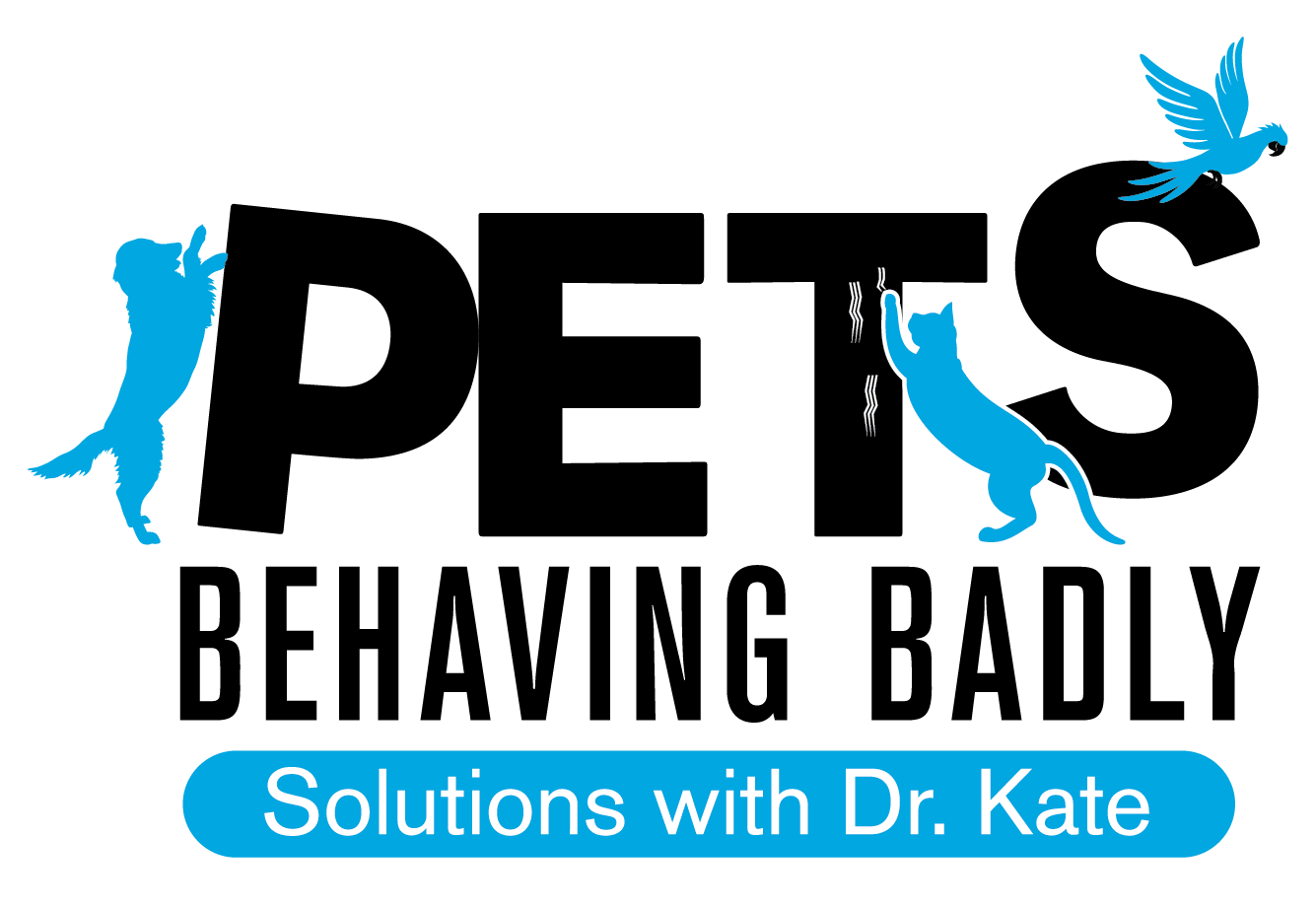Five Environmental Enrichment Ideas to keep Your Dog happy and healthy
In a previous blog post, I explained what environmental enrichment is and discussed its importance for your pet's wellbeing. Now I'm going to describe some of the best ways you can provide environmental enrichment for your pet, starting with dogs. But first, here's a reminder why it's so important...
Our modern lifestyle places dogs under enormous pressure. With the ever-increasing human population, particularly in major cities, many of us opt for apartment or unit-living as a more convenient and affordable housing option. We then expect our companion dogs to live happily with us in our smaller abodes, content with a daily walk, and to behave appropriately while we're at work all day. This expectation is unrealistic.
Many dogs don’t cope when left home alone all day
Remember that all the dog breeds we have today were originally developed to perform a job: Border Collies and Australian Kelpies herded livestock; Labradors and English Springer Spaniels were used as gun dogs to flush and retrieve game; German Shepherds, although originally used for herding, were and continue to be utilised for police and military work. Many of the smaller breeds, including the Dachshund, Italian Greyhound, Pomeranian and Shih Tzu were used to hunt small animals and as watch dogs. While some dogs are still used for these jobs today, the majority now spend their lives as our companions.
The reality is that many dogs are living in environments in which they are unable to exhibit normal behaviour. This leads to boredom, frustration and behaviour problems such as excessive barking, destructive behaviour and house soiling. In addition, research shows that social and spatial restriction and too little environmental variability can cause dogs chronic stress, fear and frustration which can also lead to the expression of undesired behaviour, particularly separation anxiety (Kiddie et al., 2017). The Covid pandemic and associated lockdowns only compounded these issues.
This is why environmental enrichment is so important for our pet dogs. The goals of enrichment are to increase behavioural choices and facilitate species appropriate behaviours in order to reduce abnormal and problem behaviour; increase positive utilisation of the environment; increase the animal's ability to cope with challenges and, overall; to enhance welfare (Kiddie et al., 2017).
Types of Enrichment
Broadly speaking, environmental enrichment can be divided into Animate (or social) and Inanimate (or physical). Animate enrichment involves interaction with a human or other dog(s) whereas inanimate enrichment involves interaction with inanimate objects such as toys, feeding enrichment, olfactory or auditory stimulation (Kiddie et al., 2017). Dogs need both animate and inanimate enrichment for optimal wellbeing.
Enrichment Ideas for Your Dog
When deciding what kind of environmental enrichment to provide for your dog, it's important to consider your dog's breed/breed type, their temperament and personality, their age, health as well as their likes and dislikes. Research the behavioural and temperamental traits of your dog's breed/breed type if you are not familiar with them already. Observe your dog's behaviour and take note of the activities they choose to engage in of their own accord. This will provide clues about the types of enrichment your dog might enjoy most. For example, does your dog really enjoy playing and interacting with other dogs or do they generally prefer the company of people? Is your dog head over heels for balls and fetch, tug games or do they prefer to sniff everything?
Here are some of the most popular ways to provide enrichment for your dog:
Social Enrichment
Positive interactions and experiences with a variety of people and other dogs is important throughout every dog's life to maintain their sociability. Including your dog in activities and outings, while ensuring they're having a positive experience, will help develop their confidence and engage their senses. This is particularly important when it comes to your vet and groomer. Ensure your dog has many more positive experiences with the vet/groomer compared to negative experiences to avoid them developing fear/anxiety-based aggression. This can be as simple as taking your dog to the vet/groomer when you don't have an appointment and feeding your dog some yummy treats or having the staff do so. Ensure you choose professionals who also understand the importance of making a trip to the vet or groomer a pleasurable experience for your dog.
Dedicated dog parks can be a good experience for friendly, sociable dogs who interact well with other dogs. Unfortunately, though, some owners take dogs to these parks that are unsuitable because they're aggressive, anti-social or too boisterous which can cause real problems.
Social enrichment is wonderful for dogs who like to play with other dogs
Some dog owners believe their dog should be friendly and sociable with every other dog it encounters and this is a very unrealistic expectation. Just like we pick and choose our friends, based on having things in common and getting along well, dogs also have preferences when it comes to other dogs. Rather than expecting and allowing your dog to interact with every dog it meets, which often leads to conflict, allow your dog to play and interact only with other dogs you know they like and get along well with. Regular play dates with the same dogs are a great way to provide your dog with social enrichment in a safe environment.
Feeding Enrichment
No wild-living animal gets their food for free, given in clean bowl. Every. Single. Day. Even though our pet dogs are domesticated and don't need to hunt and scavenge for food, they still retain the instinct to seek and find food. In fact, research shows that animals prefer to work for food rather than get it of free - this phenomenon is called contra freeloading (Iglis et al., 1997).
One of the easiest way to provide enrichment for your dog is to feed them their meals exclusively from a food dispensing toy. Doing so encourages mental problem solving and physical activity as your dog engages with the toy in an attempt to get the food. If you feed dry food, try the Kong Wobbler, a Snuffle Mat or interactive food maze toy. Varying your dog's diet, if appropriate, is another great way to provide enrichment.
Raw (dog safe) bones are a great option for feeding enrichment
Play Enrichment
TOYS!!! Most dogs LOVE toys. Toys are a great way to provide appropriate outlets for normal dog behaviours such as chewing, mouthing, biting, licking, chasing and tugging. When these behaviours are directed towards people they're inappropriate, but when dogs use toys as outlets for these behaviours, it's completely acceptable.
Dogs need toys as outlets for normal biting and chewing behaviour'
Think about how your dog engages in play with toys. Are they a toy destroyer, determined to rip apart every toy you give them? If so, look for high quality and durable toys, such as those made by Kong and Aussie Dog Products. These companies make a fantastic variety of toys for dogs that love to chew, tug and chase. It's important to provide these dogs with an appropriate outlet to avoid your clothing, furniture or household items being destroyed.
If your dog loves soft toys, try Hide a Squirrel which combines the fun of squeaky toys and problem solving. Your local op shop is another great place to find cheap soft toys.
Training Enrichment
Teaching your dog new tricks and behaviours provides an excellent form of enrichment. Learning requires problem solving and concentration and when coupled with positive reinforcement training, most dogs relish the opportunity to learn. Try short daily training sessions using high value treats to reward desired behaviour or steps towards a goal behaviour. If you'd like to learn more about how to train your dog effectively using a science-based and human training method, try Clicker Training.
If you have a little more time and motivation, why not consider participating in a dog sport like agility, flyball, herding, lure coursing or nose work? Check out the Pets4Life website for a complete list of dog sports and clubs in Australia.
There are lots of different dog sports you can participate in with your dog
Outdoor Enrichment
If your dog spends hours home alone, providing a variety of enrichment while you're away is important. Outdoor tug toys such as the Tether Tug or Home Alone by Aussie Dog Products are popular choices. In the warmer months, a clamshell pool/sandpit can provide great entertainment for dogs who like water or for those who like to dig for treats and toys.
Being outdoors away from the home is incredibly enriching for dogs that spend a lot of time indoors or confined to the property. The new smells, sights, people and other dogs all add to the excitement. Daily walks, outings and even adventures to local beaches or walking trails that allow dogs provide incredibly rich experiences allowing dogs to engage all their senses. The Dogs Allowed website is a great resource listing a variety of places, including parks, beaches, cafes and walking trails, in Australia that allow dogs.
Most dogs love going to the beach
There are many more ways to provide your dog with environmental enrichment and we would LOVE to hear what kinds of enrichment you provide your dogs. Let us know in the comments section!
For more expert tips and solutions, follow me on Instagram at @petbehaviourist and Facebook at @PetsBehavingBadlyDrKate and explore my other educational resources for pet owners.
References:
Kiddie, J., Bodymore, A., Dittrich, A., & Phillips, C. (2017). Environmental Enrichment in Kennelled Pit Bull Terriers ( Canis lupus familiaris ). Animals: An Open Access Journal from MDPI, 7(4), Animals: an Open Access Journal from MDPI, 2017, Vol.7(4).
Inglis, I. R., Forkman, B., & Lazarus, J. (1997). Free food or earned food? A review and fuzzy logic model of contrafreeloading.Animal Behaviour, 53(6), 1171-1191.






